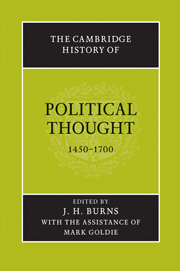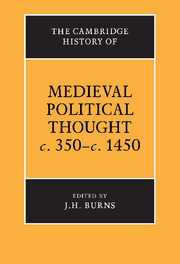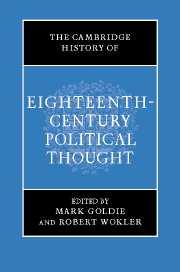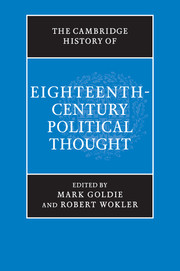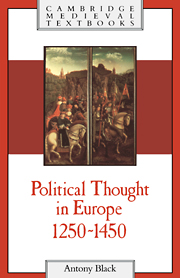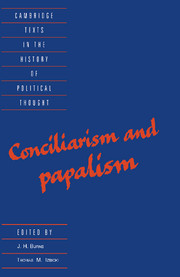The Cambridge History of Political Thought 1450–1700
This book, first published in 1992, presents a comprehensive scholarly account of the development of European political thinking through the Renaissance and the reformation to the 'scientific revolution' and political upheavals of the seventeenth century. It is written by a highly distinguished team of contributors.
- Unique, authoritative guide to European political thinking in this critical period by a highly distinguished group of scholars
- Sequel and necessary complement to The Cambridge History of Medieval Political Thought
- 'A standing resource for early modern historians and students of political thought.' John Robertson, English Historical Review
Reviews & endorsements
'A standing resource for early modern historians and students of political thought.' John Robertson, English Historical Review
'Few collective scholarly efforts are as successful as this, or are likely to persist as one of the books on early modern political thought that no scholar can afford to ignore.' Mark Hulling, The American Historical Review
Product details
November 1994Paperback
9780521477727
812 pages
230 × 154 × 47 mm
1.26kg
Available
Table of Contents
- Introduction J. H. BURNS
- PART I. RENAISSANCE AND COUNTER-RENAISSANCE:
- 1. Humanism and political theory ANTHONY GRAFTON
- 2. Italian political thought, 1450–1530 NICOLAI RUBINSTEIN
- 3. Law DONALD R. KELLEY
- 4. Transalpine humanism BRENDAN BRADSHAW
- 5. Scholasticism: survival and revival J. H. BURNS
- PART II. RELIGION, CIVIL GOVERNMENT, AND THE DEBATE ON CONSTITUTIONS:
- 6. Christian obedience and authority, 1520–50 FRANCIS OAKLEY
- 7. Calvinism and resistance theory, 1550–80 ROBERT KINGDON
- 8. Catholic resistance theory, ultramontanism, and the royalist response, 1580–1620 J. H. M. SALMON
- 9. Constitutionalism HOWELL A. LLOYD
- 10. Sovereignity and the mixed constitution: Bodin and his critics JULIAN H. FRANKLIN
- 11. Utopianism J. C. DAVIES
- PART III. ABSOLUTISM AND REVOLUTION IN THE SEVENTEENTH CENTURY:
- 12. Absolutism and royalism J. P. SOMMERVILLE
- 13. England: ancient constitution and common law Corinne C. Weston
- 14. Leveller democracy and the puritan revolution DAVID WOOTTON
- 15. English republicanism BLAIR WORDEN
- PART IV. THE END OF ARISTOTELIANISM:
- 16. Tacitism, scepticism, and reason of state Peter Burke
- 17. Grotius and Selden RICHARD TUCK
- 18. Hobbes and Spinoza NOEL MALCOLM
- PART V. NATURAL LAW AND UTILITY:
- 19. Pufendorf ALFRED DUFOUR
- 20. The reception of Hobbes MARK GOLDIE
- 21. Locke JAMES TULLY.

